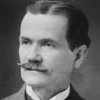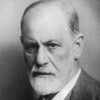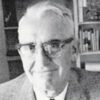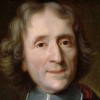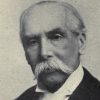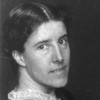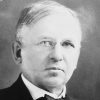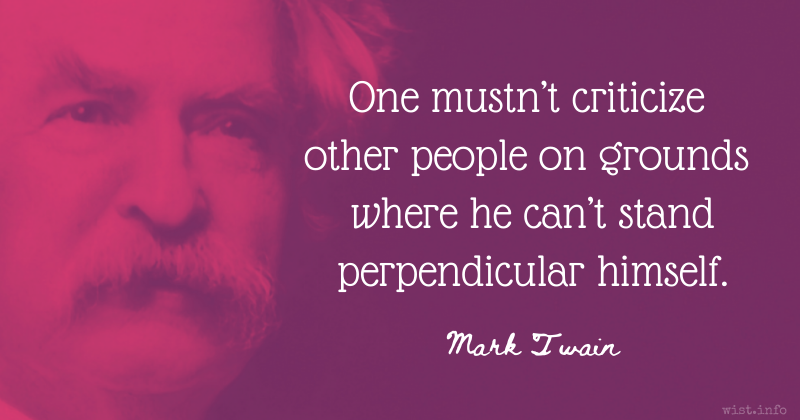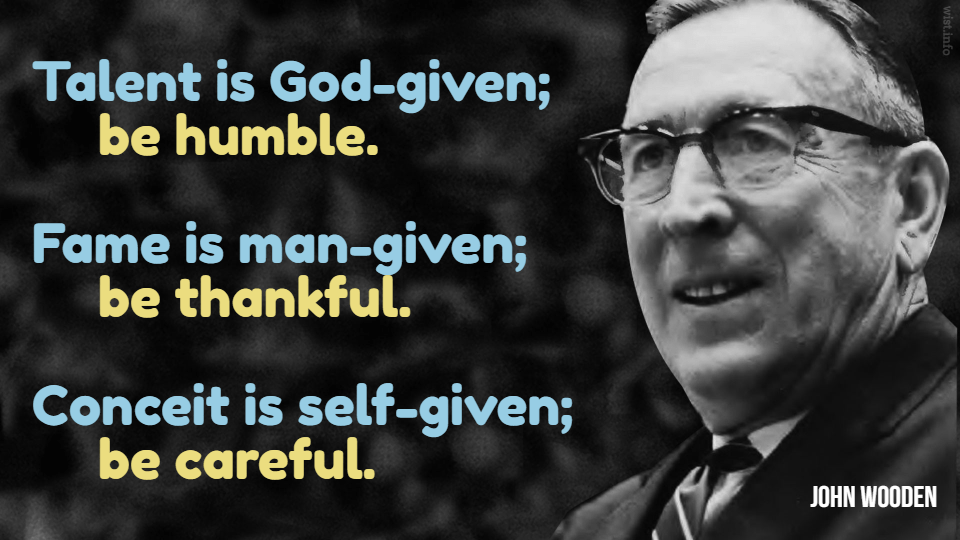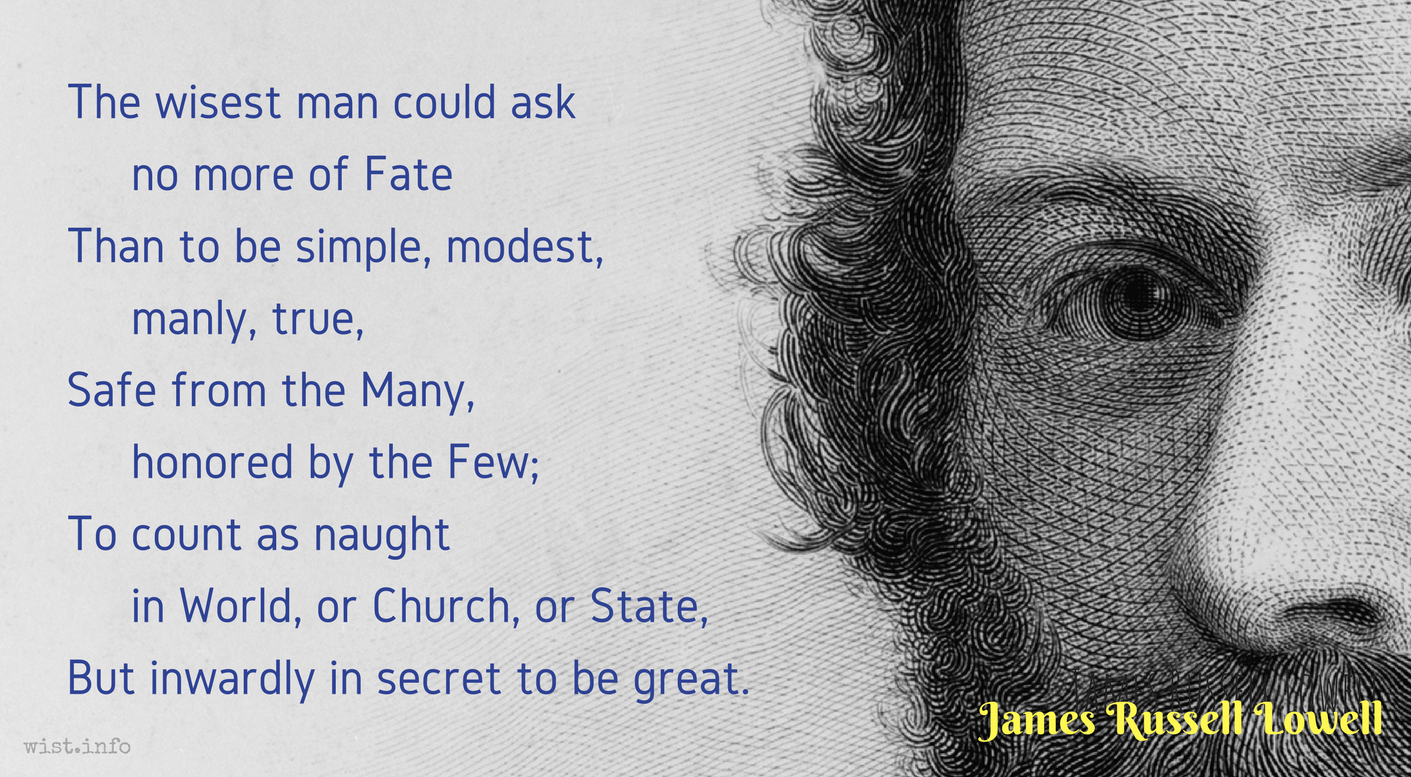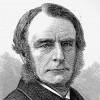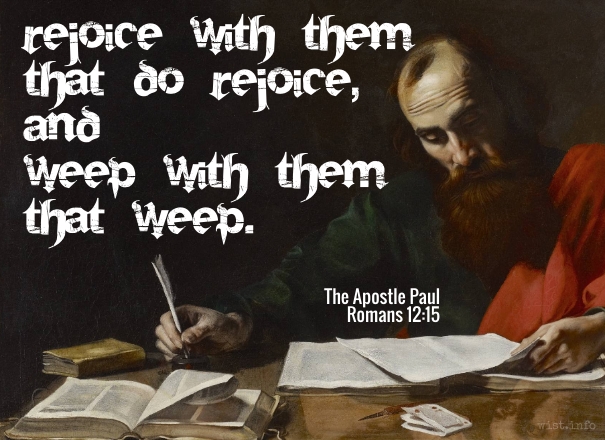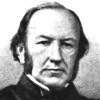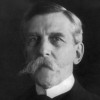Incline us oh God! to think humbly of ourselves, to be severe only in the examination of our own conduct, to consider our fellow-creatures with kindness, and to judge of all they say and do with that charity which we would desire from them ourselves.
Jane Austen (1775-1817) English author
Prayer 3 “Another Day Now Gone”
(Source)
On e of three surviving prayers Austen wrote. More discussion: Exploring Jane Austen’s Prayers | Jane Austen's World.
Quotations about:
humility
Note not all quotations have been tagged, so Search may find additional quotes on this topic.
I don’t believe any man ever existed without vanity, and if he did he would be an extremely uncomfortable person to have anything to do with. He would, of course, be a very good man, and we should respect him very much. He would be a very admirable man — a man to be put under a glass case and shown round as a specimen — a man to be stuck upon a pedestal and copied, like a school exercise — a man to be reverenced, but not a man to be loved, not a human brother whose hand we should care to grip. Angels may be very excellent sort of folk in their way, but we, poor mortals, in our present state, would probably find them precious slow company. Even mere good people are rather depressing.
Jerome K. Jerome (1859-1927) English writer, humorist [Jerome Klapka Jerome]
Idle Thoughts of an Idle Fellow, “On Vanity and Vanities” (1886)
(Source)
It’s great to be great but it’s great to be human.
No man is great if he thinks he is.
Our Father in Heaven, not by Heaven bounded
but there indwelling for the greater love Thou
bear’st Thy first works in the realm first-founded,
hallowed be Thy name, hallowed Thy Power
by every creature as its nature grants it
to praise Thy quickening breath in its brief hour.
Let come to us the sweet peace of Thy reign,
for if it come not we cannot ourselves
attain to it however much we strain.
And as Thine Angels kneeling at the throne
offer their wills to Thee, singing Hosannah,
so teach all men to offer up their own.
Give us this day Thy manna, Lord we pray,
for if he have it not, though man most strive
through these harsh wastes, his speed is his delay.
As we forgive our trespassers the ill
we have endured, do Thou forgive, not weighing
our merits, but the mercy of Thy will.
Our strength is as a reed bent to the ground:
do not Thou test us with the Adversary,
but deliver us from him who sets us round.
This last petition. Lord, with grateful mind,
we pray not for ourselves who have no need,
but for the souls of those we left behind.[O Padre nostro, che ne’ cieli stai,
non circunscritto, ma per più amore
ch’ai primi effetti di là sù tu hai,
laudato sia ’l tuo nome e ’l tuo valore
da ogne creatura, com’è degno
di render grazie al tuo dolce vapore.
Vegna ver’ noi la pace del tuo regno,
ché noi ad essa non potem da noi,
s’ella non vien, con tutto nostro ingegno.
Come del suo voler li angeli tuoi
fan sacrificio a te, cantando osanna,
così facciano li uomini de’ suoi.
Dà oggi a noi la cotidiana manna,
sanza la qual per questo aspro diserto
a retro va chi più di gir s’affanna.
E come noi lo mal ch’avem sofferto
perdoniamo a ciascuno, e tu perdona
benigno, e non guardar lo nostro merto.
Nostra virtù che di legger s’adona,
non spermentar con l’antico avversaro,
ma libera da lui che sì la sprona.
Quest’ultima preghiera, segnor caro,
già non si fa per noi, ché non bisogna,
ma per color che dietro a noi restaro.]Dante Alighieri (1265-1321) Italian poet
The Divine Comedy [Divina Commedia], Book 2 “Purgatorio,” Canto 11, l. 1ff (11.1-24) (1314) [tr. Ciardi (1961)]
(Source)
A paraphrase of the Christian Paternoster (the Lord's Prayer or "Our Father," from Matt. 6.9-13) prayer, recited by the Proud in Purgatory as both a "first children's prayer" and an act of humility. While it may seem blasphemous for Dante to modify a Biblical prayer in this way, St. Augustine wrote that the Lord's Prayer could be personalized, so long as its main petitions remained intact.
Given the length of the passage, I've reduced the number of parallel translations shown.
(Source (Italian)). Alternate translations:
Great Father! whom the Universe obeys!
Who, by thy boundless Love's transcendent rays.
In purest light, the brightest virtue flows:
Let all the orders of creation join
In one deep plaudit to that love divine.
Which thro' the countless tribes of being glows.
Let thy celestial Grace, with heav'nly plume,
Descend, where, plung'd in this terrestrial gloom,
We ply our powers in vain, to seize the boon;
And as the Powers above, that own thy sway,
With joy the dictates of thy will obey.
So may th' example spread beneath the Moon.
May thy unsparing hand, with daily food,
Supply our frailty; else, by Time subdu'd,
Our steps must falter in this vale of woe;
As other's faults we pass, do thou forgive! --
Let not our deep defects our souls deprive
Of thy supernal favours, bounteous flow!
With thy protecting hand, O Saviour! shield
Our stagg'ring virtue, in the dangerous field!
And keep at bay the sin-provoking Foe.
We pray not for ourselves, but those behind.
That, breathing still, their painful journey wind
Thro' the sublunar vale of crimes and woe.
[tr. Boyd (1802), st. 1-4]
Our Father, thou who dwellest in the heavens,
Not circumscribed, but from the greater love
Thou bearest to the first effects on high,
Praised be thy name and thine omnipotence
By every creature, as befitting is
To render thanks to thy sweet effluence.
Come unto us the peace of thy dominion,
For unto it we cannot of ourselves,
If it come not, with all our intellect.
Even as thine own Angels of their will
Make sacrifice to thee, Hosanna singing,
So may all men make sacrifice of theirs.
Give unto us this day our daily manna,
Withouten which in this rough wilderness
Backward goes he who toils most to advance.
And even as we the trespass we have suffered
Pardon in one another, pardon thou
Benignly, and regard not our desert.
Our virtue, which is easily o'ercome,
Put not to proof with the old Adversary,
But thou from him who spurs it so, deliver.
This last petition verily, dear Lord,
Not for ourselves is made, who need it not,
But for their sake who have remained behind us.
[tr. Longfellow (1867)]
Our Father, who in the heavens abidest, not as circumscribed, but through the greater love which Thou hast to Thy first effects on high, praised be Thy name and Thy worth by every creature, as it is meet to render thanks to Thy sweet Spirit. Let the peace of Thy kingdom come to us, for we towards it can naught of ourselves, if it comes not, with all our wit As of their will Thy angels make sacrifice to Thee, chanting Hosanna, so may men do of theirs. Give this day to us the daily manna, without which through this rough desert backward he goes who most toils to go forward. And as we forgive to each man the evil which we have suffered, do Thou also graciously forgive, and not regard our merit. Our strength, which easily surrenders, put not Thou to proof with the old adversary, but deliver it from him, who so urges it This last prayer, dear Lord, no longer is made for us, for it needs not, but for those who have remained behind us.
[tr. Butler (1885)]
Our Father who dost dwell in Heaven above,
Not circumscribed, but that Thou there dost place
Upon Thy primal effluence, higher love,
For ever hallowed be Thy Name and grace,
By each created thing, as is most right
In rendering thanks Thy savour to embrace.
The peace of Thy own kingdom on us light,
Which of ourselves we never could attain.
Unless it come through striving with all might.
As, by their own desire, Thy angels fain
Singing Hosanna, sacrifice to Thee,
So may Thy will be done on earth by man.
Provide us with our daily manna free,
Without the which, this desert road along.
He would go back, who striveth most to flee.
And as we pardon unto each the wrong
Which we have suffered, be our pardoner,
Nor weigh the merits which to us belong.
Our virtue, which so easily doth err,
Do not thou test it with the ancient foe,
Deliver us from him that so doth spur.
This last petition, O dear Lord, we owe
Not for ourselves, for whom is no more need,
Rather for those we've left behind below.
[tr. Minchin (1885)]
O our Father, who art in heaven above,
Not as being circumscribed, but because toward
Thy first creation thou hast greater love,
Hallowed thy name be and thy power adored
By every creature, as is meet and right
To give thanks for the sweetness from thee poured;
May upon us thy kingdom's peace alight.
For to it of ourselves we cannot rise,
Unless it come itself, with all our wit.
As of their will thine angels' companies
Make sacrifice, as they Hosanna sing,
So may men make of their will sacrifice.
To us this day our daily manna bring:
Else through this desert harsh must he revert
His steps, who most to advance is labouring.
And as we pardon every one the hurt
That we have suffered, do thou pardon too,
Begninant, nor remember our desert.
Try not our will, so easy to subdue,
With the old adversary, and by thine aid
Save us from him who goads it, to our rue.
This last prayer, dear Lord, is for us not made
Any more, since remaineth now no need,
But 'tis for those who have behind us stayed.
[tr. Binyon (1943)]
Our Father, dwelling in the Heavens, nowise
As circumscribed, but as the things above,
Thy first effects, are dearest in Thine eyes.
Hallowed Thy name be and the Power thereof,
By every creature, as right meet it is
We praise the tender effluence of Thy Love.
Let come to us, let come Thy Kingdom's peace;
If it come not, we've no power of our own
To come to it, for all our subtleties.
Like as with glad Hosannas as Thy throne
Thine angels offer up their wills away,
So let men offer theirs, that Thine be done.
Our daily manna give to us this day,
Without which he that through this desert wild
Toils most to speed goes backward on his way.
As we, with all our debtors reconciled,
Forgive, do Thou forgive us, nor regard
Our merits, but upon our sins look mild.
Put not our strength, too easily ensnared
And overcome, to proof with the old foe;
But save us from him, for he tries it hard.
This last prayer is not made for us -- we know,
Dear Lord, that it is needless -- but for those
Who still remain behind us we pray so.
[tr. Sayers (1955)]
Our Father Who in Heaven dost abide,
not there constrained but dwelling there because
Thou lovest more Thy lofty first effects,
hallowed by Thy name, hallowed Thy Power,
by Thy creatures as it behooves us all
to render thanks for Thy sweet effluence.
Thy kingdom come to us with all its peace;
if it come not, we of ourselves cannot
attain to it, no matter how we strive.
And as Thine angels offer up their wills
to Thee in sacrifice, singing Hosannah,
let all men offer up to Thee their own.
Give us this day our daily manna, Lord:
without it, those most eager to advance
go backwards through this wild wasteland of ours.
As we forgive our trespassers, do Thou,
forgive our trespasses, merciful Lord,
look not upon our undeserving worth.
Our strength is only weakness, lead us not
into temptation by our ancient foe,
deliver us from him who urges evil.
This last request, beloved Lord, we make
not for ourselves, who know we have no need,
but for those souls who still remain behind.
[tr. Musa (1981)]
Our father, which art in heaven,
Not because circumscribed, but out of the greater love
You have for your first creation on high,
Praise be to your name and worthiness
From every creature, as it is appropriate
To render thanks to your sweet charity.
Thy kingdom come, and the peace of thy kingdom,
Because we cannot attain it of ourselves,
If it does not come, for all our ingenuity.
As of their own freewill your angels
Make sacrifice to you, singing Hosanna,
So may men also do of their freewill.
Give us this day our daily manna,
Without which, through the roughness of this desert,
He who tries hardest to advance, goes backward.
And as we forgive everyone the evil
That we have suffered, may you pardon us
Graciously, and have no regard to our merits.
Do not put our virtue to the test
With the old adversary, it is easily overcome,
But free us from him who spurs us on.
This last prayer, dear Lord, we no longer
Make for ourselves, having no need of it,
But for those who are left behind us.
[tr. Sisson (1981)]
Our Father, You who dwell within the heavens --
but are not circumscribed by them -- out of
Your greater love for Your first works above,
praised be Your name and Your omnipotence,
by every creature, just as it is seemly
to offer thanks to Your sweet effluence.
Your kingdom’s peace come unto us, for if
it does not come, then though we summon all
our force, we cannot reach it of our selves.
Just as Your angels, as they sing Hosanna,
offer their wills to You as sacrifice,
so may men offer up their wills to You.
Give unto us this day the daily manna
without which he who labors most to move
ahead through this harsh wilderness falls back.
Even as we forgive all who have done
us injury, may You, benevolent,
forgive, and do not judge us by our worth.
Try not our strength, so easily subdued,
against the ancient foe, but set it free
from him who goads it to perversity.
This last request we now address to You,
dear Lord, not for ourselves -- who have no need --
but for the ones whom we have left behind.
[tr. Mandelbaum (1982)]
O our Father who are in the heavens, not circumscribed, but because of the greater love you bear those first effects up there,
praised be your Name and your Power by every creature, for it is fitting to give thanks to your sweet Spirit.
Let the peace of your kingdom come to us, for we cannot attain to it by ourselves, if it does not come, with all our wit.
As the angels sacrifice their wills to you, singing Hosanna, so let men do with theirs.
Give us this day our daily manna, without which in this harsh wilderness he goes backwards who most strives forward.
And as we forgive all others for the evil we have suffered, do you forgive us lovingly, and do not regard our merit.
Our strength, which is easily subdued, do not tempt with the ancient adversary, but free it from him who spurs it so.
This last prayer, dear Lord, we do not make for ourselves, since there is no need, but for those who have stayed behind.
[tr. Durling (2003)]
O our Father, who are in Heaven, not because of your limitation, but because of the greater love you have for your first sublime works, praised be your name and worth by every creature, as it is fitting to give thanks for your sweet outpourings. May the peace of your kingdom come to us, since we cannot reach it by ourselves, despite all our intellect, if it does not come to us itself. As Angels sacrifice their will to yours, singing Hosanna: so may men sacrifice theirs. Give us this day our daily bread, without which he who labours to advance, goes backward, through this harsh desert. And forgive in loving-kindness, as we forgive everyone, the evil we have suffered, and judge us not by what we deserve. Do not test our virtue, that is easily conquered, against the ancient enemy, but deliver us from him who tempts it. And this last prayer, dear Lord, is not made on our behalf, since we do not need it, but for those we have left behind.
[tr. Kline (2002)]
O our Father, whose place is high in Heaven
Not fixed or held in the sky, but there ascending
Because of Your love for the first of Your creations,
May Your name be praised by every living
Creature, and also Your virtues, for You deserve
Such gratitude for all the emanations
You send us. May your kingdom's peace come down
To us, who are not strong enough by ourselves,
And can not take it, no matter how we strive.
Just as Your angels sacrifice their wills
To You, singing Hosannah, men as well
Should bend their wills to Yours, and sing Hosannah.
Give us, this day, our daily grace, without which
Men go backwards, here in this bitter desert,
Forced to go back, although they struggle for more.
And just as we forgive to all men the wrongs
We have endured, may You in loving kindness
Pardon us, in spite of all our sins.
Our powers are weak, and easily overcome:
Do not oblige us to fight our ancient foe,
But free us from him, who tries to woo us with evil.
And this last prayer, dear Lord, we do not make
For ourselves, who are not in need, but for the sake
Of those behind us, as we rise to Your face.
[tr. Raffel (2010)]
Modesty is to merit as shadows are to the figure in a painting: it strengthens it and sets it off.
[La modestie est au mérite ce que les ombres sont aux figures dans un tableau: elle lui donne de la force et du relief.]Jean de La Bruyère (1645-1696) French essayist, moralist
The Characters [Les Caractères], ch. 2 “Of Personal Merit [Du Mérite Personnel],” § 17 (2.17) (1688) [tr. Stewart (1970)]
(Source)
(Source (French)). Alternate translations:
Modesty is to Merit, what Shades are to the Figures in a Picture; it gives it Strength and Heightening.
[Curll ed. (1713)]
Modesty is to Merit as Shades to Figures in a Picture; giving it Strength and Beauty.
[Browne ed. (1752)]
Modesty is to merit what shade is to figures in a picture; it gives it strength and makes it stand out.
[tr. Van Laun (1885)]
And even when I reproach myself for it, the love of praise tempts me. There is temptation in the very process of self-reproach, for often, by priding himself on his contempt for vainglory, a man is guilty of even emptier pride; and for this reason his contempt of vainglory is an empty boast, because he cannot really hold it in contempt as long as he prides himself on doing so.
[[Amor laudis] temptat et cum a me in me arguitur, eo ipso quo arguitur, et saepe de ipso vanae gloriae contemptu vanius gloriatur, ideoque non iam de ipso contemptu gloriae gloriatur: non enim eam contemnit cum gloriatur.]
Augustine of Hippo (354-430) Christian church father, philosopher, saint [b. Aurelius Augustinus]
Confessions, Book 10, ch. 38 / ¶ 63 (10.38.63) (c. AD 398) [tr. Pine-Coffin (1961)]
(Source)
(Source (Latin)). Alternate translations:
[Love of praise] tempts, even when it is reproved by myself in myself, on the very ground that it is reproved; and often glories more vainly of the very contempt of vain-glory; and so it is no longer contempt of vain-glory, whereof it glories; for it doth not contemn when it glorieth.
[tr. Pusey (1838)]
[Love of praise] tempts, even when within I reprove myself for it, on the very ground that it is reproved; and often man glories more vainly of the very scorn of vain-glory; wherefore it is not any longer scorn of vain-glory whereof it glories, for he does not truly contemn it when he inwardly glories.
[tr. Pilkington (1876)]
[Love of praise] tempts, even when I condemn it in myself, and from the very fact that it is condemned; and often glories more vainly in the very contempt of vain-glory; and therefore it ceases to be contempt of vain-glory, whereof it glories; for it does not really contemn it when it so glories.
[tr. Hutchings (1890)]
Love of praise tempts me even when I reprove it in myself, indeed in the very fact that I do reprove it: a man often glories the more vainly for his very contempt of vainglory: for which reason he does not really glory in his contempt of glory; in that he glories in it, he does not contemn it.
[tr. Sheed (1943), 10.39]
[Love of praise] tempts me, even when I inwardly reprove myself for it, and this precisely because it is reproved. For a man may often glory vainly in the very scorn of vainglory--and in this case it is not any longer the scorn of vainglory in which he glories, for he does not truly despise it when he inwardly glories in it.
[tr. Outler (1955)]
Even when [love of praise] is rebuked within myself by myself, it affords temptation by the very fact that it is rebuked. Often, out of very contempt of glory a man derives an emptier glory. No longer, therefore, does he glory in contempt of vainglory: he does not despise it, in as much as he glories over it.
[tr. Ryan (1960)]
Indeed [the love of praise] tempts me even in the very act of condemning it; often in our contempt of vainglory we are merely being all the more vainglorious, and so one cannot really say that one glories in the contempt of glory; for one does not feel contempt for something in which one glories.
[tr. Warner (1963)]
[Love of praise] is a temptation, even when shown up by myself and in myself. "Shown up" is the right word. It often boasts emptily over its very scorn for empty boasting, which thus ceases to be the scorn of which it boasts. The boaster does not in truth despise it, when he boasts about it.
[tr. Blaiklock (1983)]
[Hankering for praise] is a real temptation to me, and even when I am accusing myself of it, the very fact that I am accusing myself tempts me to further self-esteem. We can make our very contempt for vainglory a ground for preening ourselves more vainly still, which proves that what we are congratulating ourselves on is certainly not contempt for vainglory; for no one who indulges in it can be despising it.
[tr. Boulding (1997)]
To laugh sturdily and often, and to wear a long belt, are not incongruous with sanctity. God’s image is in every man, high or low — a road puddle holds the moon as well as the sea.
Austin O'Malley (1858-1932) American ophthalmologist, professor of literature, aphorist
Keystones of Thought (1914)
(Source)
Temperance.
Temperance and honoring the gods. It’s the best we can do.
The smartest thing mortals can choose to do.[τὸ σωφρονεῖν δὲ καὶ σέβειν τὰ τῶν θεῶν
κάλλιστον: οἶμαι δ᾽ αὐτὸ καὶ σοφώτατον
θνητοῖσιν εἶναι κτῆμα τοῖσι χρωμένοις.]Euripides (485?-406? BC) Greek tragic dramatist
Bacchæ [Βάκχαι], l. 1150ff [Messenger/Ἄγγελος] (405 BC) [tr. Pauly (2019)]
(Source)
After recounting the brutal murder and dismemberment of Pentheus by the Bacchantes in punishment of his disrespect to Dionysus.
(Source (Greek)). Alternate translations:
For modest worth, and reverence for the Gods,
Are, in my judgement, the most certain marks
Of glory and of wisdom in mankind.
[tr. Wodhull (1809)]
Soundness of mind and reverence for the affairs of the gods is best; and this, I think, is the wisest possession for those mortals who adopt it.
[tr. Buckley (1850)]
Oh! to be reverent, to adore the gods,
This is the noblest, wisest course of man,
Taking dread warning from this dire event.
[tr. Milman (1865)]
For soberness and reverence for the gods
I deem the wisest and the best of things
To all such men as learn this lesson well.
[tr. Rogers (1872)]
To my mind self-restraint and reverence for the things of God point alike the best and wisest course for all mortals who pursue them.
[tr. Coleridge (1891)]
Ay, self-restraint, and reverence for the Gods
Are best, I ween; 'tis wisest far for men
To get these in possession, and cleave thereto.
[tr. Way (1898)]
Oh, to fulfil
God's laws, and have no thought beyond His will,
Is man's best treasure. Aye, and wisdom true,
Methinks, for things of dust to cleave unto!
[tr. Murray (1902)]
Humility,
a sense of reverence before the sons of heaven --
of all the prizes that a mortal man might win,
these, I say, are wisest; these are best.
[tr. Arrowsmith (1960)]
To be of sound mind and reverence the things divine
is finest -- and I think it is also the wisest
practice for mortal men to follow.
[tr. Kirk (1970)]
The noblest thing a man can have is a humble and quiet heart that reveres the gods. I think that is also the wisest thing for a man to possess, if he will be use it.
[tr. Vellacott (1973)]
Pure thought, and reverence for what is god’s --
this is the fairest and, I think, the wisest
possession mortals can employ.
[tr. Neuburg (1988)]
I am but a simple man, yet to me
reverence and humility before the Gods
is best for all men. It is also the only wisdom.
If only men would use it. So I think.
[tr. Cacoyannis (1982)]
To be moderate and honor godly things
Is best. I think it the wisest possession
For mortal men, if they use it well.
[tr. Blessington (1993)]
Moderation and reverence for things divine,
this is the best course. And it is also, I think,
the wisest possession for those mortals who use it.
[tr. Esposito (1998)]
But this is the highest glory: have a sound mind and reverence for
whatever belongs to the gods. This too is the most wise
of all pursuits a human being can follow.
[tr. Woodruff (1999)]
Wise moderation and a reverence
For what is of the gods -- this is what’s best.
And this, I think, of all possessions owned
By mortals, is the wisest one to use.
[tr. Gibbons/Segal (2000)]
The best thing of all is to practice moderation and worship the gods. That is also, I think, the wisest possession a mortal can make use of.
[tr. Kovacs (2002)]
The greatest wisdom is humility,
It is the greatest gift the gods give us;
Most wise the man who uses it.
[tr. Teevan (2002)]
Wisdom and respect for the gods is a great virtue and a possession most worthy for the mortals to have.
[tr. Theodoridis (2005)]
For having a mind that respects the affairs of divine ones
is the most beautiful thing on earth, and I think
it is the wisest thing someone could do.
[tr. Valerie (2005)]
The best thing is to keep one's mind controlled,
and worship all that comes down from the gods.
That, in my view, is the wisest custom,
for those who can conduct their lives that way.
[tr. Johnston (2008), l. 1428ff]
This is another lesson:
that moderation and reverence for the gods
are a mortal's best possession.
[tr. Robertson (2014), l. 1149ff]
For I believe
that our most beautiful possessions are sanity and a love of the gods.
The wise are those who use wisdom.
[tr. Behr/Foster (2019)]
Balance [sōphroneîn] and reverence for the affairs of the gods is best. I think this is the most sophon possession for mortals’ use.
[tr. Buckley/Sens/Nagy (2020)]
Humility, a sense of reverence before the sons of heaven --
of all the prizes that a mortal man might win
these, I say, are wisest; these are best.
[Bartlett's]
There are no exact directions. There are probably no directions at all. The only things that I am able to recommend at this moment are: a sense of humour; an ability to see the ridiculous and the absurd dimensions of things; an ability to laugh about others as well as about ourselves; a sense of irony; and, of everything that invites parody in this world. In other words: rising above things, or looking at them from a distance; sensibility to the hidden presence of all the more dangerous types of conceit in others, as well as in ourselves; good cheer; an unostentatious certainty of the meaning of things; gratitude for the gift of life and courage to assume responsibility for it; and, a vigilant mind.
Václav Havel (1936-2011) Czech playwright, essayist, dissident, politician
Speech, accepting the “Open Society” Prize, Central European University (24 Jun 1999)
(Source)
Miserable mortals! Can we contribute to the honour and glory of God? I could wish that expression were struck out of our prayer books.
We never get anywhere in this world without the forces of history and individual persons in the background helping us to get there.
Martin Luther King, Jr. (1929-1968) American clergyman, civil rights leader, social activist, preacher
“Conquering Self-Centeredness,” sermon, Dexter Ave. Baptist Church, Montgomery, Ala. (11 Aug 1957)
(Source)
A person in love is humble. A person who loves has, so to speak, forfeited a part of his narcissism.
Sigmund Freud (1856-1939) Austrian psychoanalyst and neurologist
“On Narcissism: An Introduction [Zur Einführung des Narzißmus],” ch. 3 (1914) [tr. Strachey]
(Source)
Alternate translations:
The lover is humble. He who loves has, so to speak, forfeited a part of his narcissism.
[tr. Baines/Riviere]
Whoever loves becomes humble. Those who love have, so to speak, pawned a part of their narcissism.
[Source]
The gifts and the lessons my father left me will last forever: Never take yourself too seriously, never miss a chance to laugh long and hard, speak out about political and social issues you believe in, use the written word as often as you can to make yourself and the world a better place, and love your children with all you’ve got.
Rod Serling (1924-1975) American screenwriter, playwright, television producer, narrator
Paraphrase of Rod Serling in Anne Serling, As I Knew Him: My Dad, Rod Serling, Epilogue (2013)
(Source)
Democracy is based on a profound insight into human nature, the realization that all men are sinful, all are imperfect, all are prejudiced, and none knows the whole truth. That is why we need liberty and why we have an obligation to hear all men. Liberty gives us a chance to learn from other people, to become aware of our own limitations, and to correct our bias. Even when we disagree with other people we like to think that they speak from good motives, and while we realize that all men are limited, we do not let ourselves imagine that any man is bad. Democracy is a political system for people who are not sure that they are right.
E. E. Schattschneider (1892-1971) American political scientist [Elmer Eric Schattschneider]
Two Hundred Million Americans in Search of a Government (1969)
(Source)
The superior man in everything considers righteousness to be essential. He performs it according to the rules of propriety. He brings it forth in humility. He completes it with sincerity. This is indeed a superior man.
[君子義以為質,禮以行之,孫以出之,信以成之,君子哉]
Confucius (c. 551- c. 479 BC) Chinese philosopher, sage, politician [孔夫子 (Kǒng Fūzǐ, K'ung Fu-tzu, K'ung Fu Tse), 孔子 (Kǒngzǐ, Chungni), 孔丘 (Kǒng Qiū, K'ung Ch'iu)]
The Analects [論語, 论语, Lúnyǔ], Book 15, verse 18 (15.18) (6th C. BC – 3rd C. AD) [tr. Legge (1861), 15.17]
(Source)
(Source (Chinese)). Alternate translations, noting where Legge's numbering is used:
When the "superior man" regards righteousness as the thing material, gives operation to it according to the rules of propriety, lets it issue in humility, and become complete in sincerity, -- there indeed is your superior man!
[tr. Jennings (1895), 15.17]
A wise and good man makes Right the substance of his being; he cries it out with judgment and good sense; he speaks it with modesty; and he attains it with sincerity: -- such a man is a really good and wise man!
[tr. Ku Hung-Ming (1898), 15.17]
The noble man takes the Right as his foundation principle, reduces it to practice with all courtesy, carries it out with modesty, and renders it perfect with sincerity, -- such is the noble man.
[tr. Soothill (1910), 15.17]
When a princely man makes the Right his fundamental principle, makes Courtesy his rule in evolving it, Modesty his rule for exhibiting it, and Sincerity his rule for effectuating it perfectly, -- what a princely man he is!
[tr. Soothill (1910), 15.17, alternate]
The proper man gives substance to his acts by equity. He proceeds according to the rites, puts them forth modestly, and makes them perfect by sticking to his word. That's the proper man (in whom's the voice of his forebears).
[tr. Pound (1933), 15.17]
The gentleman who takes the right as his material to work upon and ritual as the guide in putting what is right into practice, who is modest in setting out his projects and faithful in carrying them to their conclusions, he indeed is a true gentleman.
[tr. Waley (1938), 15.17]
He whose very substance is justice; whose actions are governed by the rites; whose participation in affairs is compliant; and whose crowning perfection is truthfulness -- that man is a perfect gentleman.
[tr. Ware (1950)]
The gentleman has morality as his basic stuff and by observing the rites puts it into practice, by being modest gives it expression, and by being trustworthy in word brings it to completion. Such is a gentleman indeed!
[tr. Lau (1979)]
Righteousness the gentleman regards as the essential stuff and the rites are his means of putting it into effect. If modesty is the quality with which he reveals it and good faith is his method of bringing it to completion, he is indeed a gentleman.
[tr. Dawson (1993)]
A gentleman takes justice as his basis, enacts it in conformity with the ritual, expounds it with modesty, and through good faith, brings it to fruition. That is how a gentleman proceeds.
[tr. Leys (1997)]
A gentleman considers righteousness his major principle; he practices it in accordance with the rituals, utters it in modest terms, and fulfils it with truthfulness. A gentleman indeed!
[tr. Huang (1997)]
A gentleman takes the righteousness as his essence, practices with the rituals, words with modesty, and gets achievement with honesty. It is the gentleman.
[tr. Cai/Yu (1998), v. 402]
Having a sense of appropriate conduct [yi] as one's basic disposition [zhi], developing it in observing ritual propriety [li], expressing it with modesty, and consummating it in making good on one's word [xin]; this then is an exemplary person [junzi].
[tr. Ames/Rosemont (1998)]
If a gentleman has right as his substance, and puts it in practice with propriety, promulgates it with lineality, and brings it to a conclusion with fidelity, he is a gentleman indeed!
[tr. Brooks/Brooks (1998), LY17 c0270 addition]
The noble-minded make Duty their very nature. They put it into practice through Ritual; they make it shine through humility; and standing by their words, they perfect it. Then they are noble-minded indeed!
[tr. Hinton (1998)]
The gentleman takes rightness as his substance, puts it into practice by means of ritual, gives it expression through modesty, and perfects it by being trustworthy. Now that is a gentleman!
[tr. Slingerland (2003)]
The gentleman makes rightness the substance, practices it through ritual, displays it with humility, brings it to completion with trustworthiness. That’s the gentleman.
[tr. Watson (2007)]
The gentleman makes rightness the substance. He works at it through ritual propriety; he expresses it with modesty; he brings it to completion by being trustworthy. Now that is a gentleman!
[tr. Annping Chin (2014)]
A Jun Zi regards righteousness and honor as fundamental bases, acts in line with Li, shows humility, delivers promises, and completes contracts with sincerity and trust. If so, he is indeed a Jun Zi.
[tr. Li (2020)]
A leader takes rightness as their essence, puts it into practice through ritual, manifests it through humility, and brings it to fruition through trustworthiness. This is how a leader behaves.
[tr. Brown (2021)]
Humility makes us charitable toward our neighbor. Nothing will make us so generous and merciful to the faults of others as seeing our own faults.
François Fénelon (1651-1715) French theologian, poet, writer [François de Salignac de la Mothe-Fénelon]
Letter, Undated [tr. Edmonson / Helms]
(Source)
In Robert J. Edmonson, Hal M. Helms (eds.), The Complete Fénelon, Part 2, ch. 8 (2008). Alternate translations:
Nothing will make us so charitable and tender to the faults of others as by self-examination thoroughly to know our own.
[Source (1895)]
Humility renders us charitable towards our neighbor; nothing will make us so tender and indulgent to the faults of others as a view of our own.
[tr. Metcalf (1853)]
Travelers learn not just foreign customs and curious cuisines and unfamiliar beliefs and novel forms of government. They learn, if they are lucky, humility. Experiencing on their senses a world different from their own, they realize their provincialism and recognize their ignorance.
I think I am actually humble. I think I’m much more humble than you would understand.
Donald J. Trump (b. 1946) American businessman, media personality, US President (2017-21)
Interview by Leslie Stahl, 60 Minutes (18 Jul 2016)
(Source)
A candid admission of a blunder is refreshing and not often heard in human affairs. It is the saint alone who is large-minded enough to think and speak in this way. This is part of his authenticity.
Thomas Dubay (1921-2020) American Catholic priest, author, spiritual director
Authenticity: A Biblical Theology of Discernment, Part 2, ch. 6 (1977)
(Source)
For there is no gardening without humility, an assiduous willingness to learn, and a cheerful readiness to confess you were mistaken. Nature is continually sending even its oldest scholars to the bottom of the class for some egregious blunder. But, by the due exercise of patience and diligence, they may work their way to the top again.
Alfred Austin (1835-1913) English poet, UK Poet Laureate (1986-1913)
The Garden That I Love, “April 30th” (1894)
(Source)
No matter what the belief, if it had modestly said, “This is our best thought, go on, think farther!” then we could have smoothly outgrown our early errors and long since have developed a religion such as would have kept pace with an advancing world. But we were made to believe and not allowed to think. We were told to obey, rather than to experiment and investigate.
In artful boasting, one states all the information necessary to impress people, but keeps the facts decently clothed in the language of humility. Useful approaches include Disbelief, Fear and Manic Elation. For some reason, these are considered to be more attractive human emotions than justifiable pride or self-satisfaction. Probably because they are not as much fun.
Nothing is more deceitful than the appearance of humility. It is often only carelessness of opinion, and sometimes an indirect boast.
I have no time to scold, and I learned thirty years ago it was foolish to scold. I have enough trouble overcoming my own limitations without fretting over the fact God has not seen fit to distribute evenly the gift of intelligence.
John Wanamaker (1838-1922) American merchant, marketer, philanthropist, Postmaster General
Quoted in Herbert Adams Gibbons, John Wanamaker, Vol. 2 (1926)
(Source)
Variant paraphrase: "It's foolish to scold people. I have enough trouble overcoming my own limitations without fretting over the fact that God didn't see fit to distribute brains equally."
That seems to point up a significant difference between Europeans and Americans:
A European says: I can’t understand this, what’s wrong with me?
An American says: I can’t understand this, what’s wrong with him?
To make us feel small in the right way is a function of art; men can only make us feel small in the wrong way.
E. M. Forster (1879-1970) English novelist, essayist, critic, librettist [Edward Morgan Forster]
“A Book That Influenced Me,” Two Cheers for Democracy (1951)
(Source)
One of the sure signs of maturity is the ability to rise to the point of self criticism.
Martin Luther King, Jr. (1929-1968) American clergyman, civil rights leader, social activist, preacher
“The Rising Tide of Racial Consciousness,” Speech, National Urban League, New York (6 Sep 1960)
(Source)
One mustn’t criticize other people on grounds where he can’t stand perpendicular himself.
Mark Twain (1835-1910) American writer [pseud. of Samuel Clemens]
A Connecticut Yankee in King Arthur’s Court, ch. 26 “The First Newspaper” (1889)
(Source)
We have all heard enough to fill a book about Dr. Johnson’s incivilities. I wish they would compile another book consisting of Dr. Johnson’s apologies. There is no better test of a man’s ultimate chivalry and integrity than how he behaves when he is wrong; and Johnson behaved very well. He understood (what so many faultlessly polite people do not understand) that a stiff apology is a second insult. He understood that the injured party does not want to be compensated because he has been wronged; he wants to be healed because he has been hurt.
If a man has reported to you that a certain person speaks ill of you, do not make any defense to what has been told you: but reply, The man did not know the rest of my faults, for he would not have mentioned these only.
Epictetus (c.55-c.135) Greek (Phrygian) Stoic philosopher
Enchiridion, 33 (c. AD 135) [tr. Long (1888)]
(Source)
Alt. trans.: "If anyone tells you that a certain person speaks ill of you, do not make excuses about what is said of you, but answer, 'He was ignorant of my other faults, else he would have not mentioned these alone.'" [tr. Higginson (1948)]
Talent is God-given; be humble. Fame is man-given; be thankful. Conceit is self-given; be careful.
HENRY: Once more unto the breach, dear friends, once more;
Or close the wall up with our English dead!
In peace, there’s nothing so becomes a man,
As modest stillness and humility:
But when the blast of war blows in our ears,
Then imitate the action of the tiger;
Stiffen the sinews, summon up the blood,
Disguise fair nature with hard-favored rage ….William Shakespeare (1564-1616) English dramatist and poet
Henry V, Act 3, sc. 1, l. 1ff (3.1.1-8) (1599)
(Source)
You can tell the character of every man when you see how he gives and receives praise.
Seneca the Younger (c. 4 BC-AD 65) Roman statesman, philosopher, playwright [Lucius Annaeus Seneca]
Moral Letters to Lucilius [Epistulae morales ad Lucilium], Letter 52 “On choosing our teachers,” Sec. 12
(Source)
The Abilities of Man must fall short on one side or other, like too scanty a Blanket when you are a-bed. If you pull it upon your Shoulders, you leave your Feet bare; if you thrust it down upon your Feet, your Shoulders are uncovered.
William Temple, 1st Baronet Temple (1628-1699) English statesman and essayist.
Miscellanea (1705)
(Source)
No labor, however humble, is dishonoring.
The Talmud (AD 200-500) Collection of Jewish rabbinical writings
Babylonian Talmud, Nedarim 49b
Alt. trans.: "Great is labor, for it honors the worker." [tr. Freedman] Alt. trans.: "Labor is great, as it brings honor to the laborer who performs it."
The wisest man could ask no more of Fate
Than to be simple, modest, manly, true,
Safe from the Many, honored by the Few;
To count as naught in World, or Church, or State,
But inwardly in secret to be great.James Russell Lowell (1819-1891) American diplomat, essayist, poet
“Jeffries Wyman,” The Nation #484 (8 Oct 1874)
(Source)
Let us be content to do little, if God sets us at little tasks. It is but pride and self-will which says, “Give me something huge to fight, — and I should enjoy that — but why make me sweep the dust?”
Charles Kingsley (1819-1875) English clergyman, historian, essayist, novelist (pseud. "Parson Lot")
Letter, “To a lady who consulted him about Sisterhoods” (24 Jul 1854)
(Source)
The abdomen is the reason why man does not easily take himself for a god.
If I thought of man as the final image of God, I should not know what to think of God. But when I consider that our ancestors, at a time fairly recent in relation to the earth’s history, were perfectly ordinary apes, closely related to chimpanzees, I see a glimmer of hope. It does not require very great optimism to assume that from us human beings something better and higher may evolve. Far from seeing in man the irrevocable and unsurpassable image of God, I assert — more modestly and, I believe, in greater awe of the Creation and its infinite possibilities — that the long-sought missing link between animals and the really humane being is ourselves!
Konrad Lorenz (1903-1989) Austrian zoologist, ethologist, ornithologist
On Aggression, ch. 12 “On the Virtue of Scientific Humility” (1963)
(Source)
He spoke the following parable to some people who prided themselves on being virtuous and despised everyone else, “Two men went up to the Temple to pray, one a Pharisee, the other a tax collector. The Pharisee stood there and said this prayer to himself, ‘I thank you, God, that I am not grasping, unjust, adulterous like the rest of mankind, and particularly that I am not like this tax collector here. I fast twice a week; I pay tithes on all I get.’ The tax collector stood some distance away, not daring even to raise his eyes to heaven; but he beat his breast and said, ‘God, be merciful to me, a sinner.’ This man, I tell you, went home again at rights with God; the other did not. For everyone who exalts himself will be humbled, but the man who humbles himself will be exalted.”
The Bible (The New Testament) (AD 1st - 2nd C) Christian sacred scripture
Luke 18:9-14, “The Parable of the Pharisee and the Tax Collector” [Jerusalem]
(Source)
And he spake this parable unto certain which trusted in themselves that they were righteous, and despised others: Two men went up into the temple to pray; the one a Pharisee, and the other a publican. The Pharisee stood and prayed thus with himself, God, I thank thee, that I am not as other men are, extortioners, unjust, adulterers, or even as this publican. I fast twice in the week, I give tithes of all that I possess. And the publican, standing afar off, would not lift up so much as his eyes unto heaven, but smote upon his breast, saying, God be merciful to me a sinner. I tell you, this man went down to his house justified rather than the other: for every one that exalteth himself shall be abased; and he that humbleth himself shall be exalted.
[KJV]
He also told this parable to some who trusted in themselves that they were righteous and regarded others with contempt: “Two men went up to the temple to pray, one a Pharisee and the other a tax collector. The Pharisee, standing by himself, was praying thus, ‘God, I thank you that I am not like other people: thieves, rogues, adulterers, or even like this tax collector. I fast twice a week; I give a tenth of all my income.’ But the tax collector, standing far off, would not even lift up his eyes to heaven but was beating his breast and saying, ‘God, be merciful to me, a sinner!’ I tell you, this man went down to his home justified rather than the other, for all who exalt themselves will be humbled, but all who humble themselves will be exalted.”
[NRSV]
Jesus also told this parable to people who were sure of their own goodness and despised everybody else. “Once there were two men who went up to the Temple to pray: one was a Pharisee, the other a tax collector. The Pharisee stood apart by himself and prayed, ‘I thank you, God, that I am not greedy, dishonest, or an adulterer, like everybody else. I thank you that I am not like that tax collector over there. I fast two days a week, and I give you one tenth of all my income.’ But the tax collector stood at a distance and would not even raise his face to heaven, but beat on his breast and said, ‘God, have pity on me, a sinner!’ I tell you,” said Jesus, “the tax collector, and not the Pharisee, was in the right with God when he went home. For those who make themselves great will be humbled, and those who humble themselves will be made great.” [GNT]
Rejoice with them that do rejoice, and weep with them that weep.
The Bible (The New Testament) (AD 1st - 2nd C) Christian sacred scripture
Romans 12:15 [KJV]
Quoting 12:15-18: "Rejoice with those who rejoice, and weep with those who weep. Be of the same mind toward one another; do not be haughty in mind, but associate with the lowly Do not be wise in your own estimation. Never pay back evil for evil to anyone Respect what is right in the sight of all men. If possible, so far as it depends on you, be at peace with all men."
The best advice I’ve ever received is, “No one else knows what they’re doing either.”
You know, if you’re an American and you’re born at this time in history especially, you’re lucky. We all are. We won the world history Powerball lottery, but a little modesty about it might keep the heat off of us. I can’t stand the people who say things like, “We built this country!” You built nothing. I think the railroads were pretty much up by 1980.
Do you wish people to think well of you? Don’t speak well of your-self.
[Voulez-vous qu’on croie du bien de vous? N’en dites point.]
For as blushing will sometimes make a whore pass for a virtuous woman, so modesty may make a fool seem a man of sense.
But though I’m not a spaceman,
Famous and renowned,
I’m just a guy that’s down to earth,
With both feet on the ground.
It’s all imagination,
I’ll never reach the stars.
My heart is still a fireball, a fireball,
Every time I gaze into your starry eyes.(Other Authors and Sources)
“Fireball XL-5,” st. 3 (1962)
(Source)
Charles Blackwell (lyrics), Barry Gray (music), Don Spencer (vocals).
You should show the least vanity about your greatest gifts. Content yourself with doing: leave saying to others.
[Afecte menos sus mayores eminencias. Conténtese con hacer, y deje para otros el decir.]
Baltasar Gracián y Morales (1601-1658) Spanish Jesuit priest, writer, philosopher
The Art of Worldly Wisdom [Oráculo Manual y Arte de Prudencia], § 295 (1647) [tr. Maurer (1992)]
(Source)
(Source (Spanish)). Alternate translations:
Shew as little as thou canst thy most eminent qualities. Rest satisfied to doe, and leave it to others to talk of it.
[Flesher ed. (1685)]
The greater your exploits the less you need affect them: content yourself with doing, leave the talking to others.
[tr. Jacobs (1892)]
Real achievement needs no such affectation. Rest in accomplishment, and leave talk to others. Do, and do not brag.
[tr. Fischer (1937)]
Make the least ado about your greatest gifts. Be content to act, and leave the talking to others.
[Source]
You know that sickening feeling of inadequacy and over-exposure you feel when you look upon your own empurpled prose? Relax into the awareness that this ghastly sensation will never, ever leave you, no matter how successful and publicly lauded you become. It is intrinsic to the real business of writing and should be cherished.
Will Self (b. 1961) English author, journalist, television personality
In “Ten Rules for Writing Fiction,” The Guardian (20 Feb 2010)
(Source)
There is no method more likely to cure passion and rashness, than the frequent and attentive consideration of one’s own weaknesses: this will work into the mind an habitual sense of the need one has of being pardoned, and will bring down the swelling pride and obstinacy of heart, which are the cause of hasty passion.
James Burgh (1714-1775) British politician and writer
The Dignity of Human Nature, Sec. 5 “Miscellaneous Thoughts on Prudence in Conversation” (1754)
(Source)







